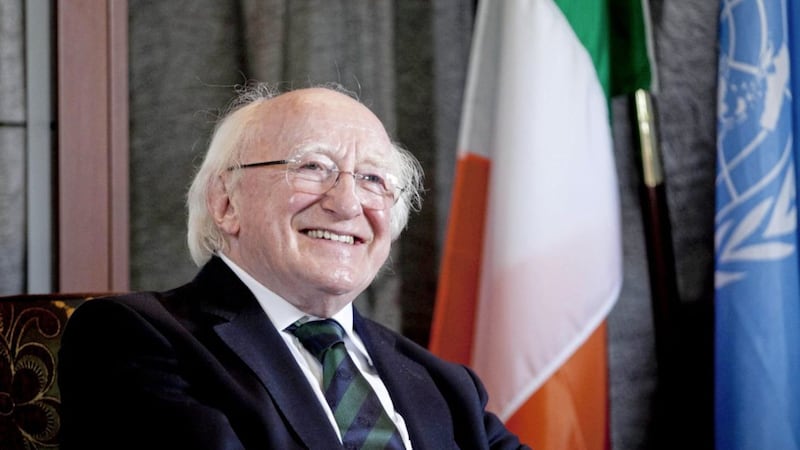WHEN I heard President Higgins say segregated education in Northern Ireland could no longer be justified in the wake of the recent rioting involving young people, I heaved a deep sigh.
Speaking on The Late Late Show on RTÉ, he said educating pupils based on their religious background was “abandoning them to parcels of hate and memory that others are manipulating”.
He’s not alone in his view that our problems of sectarianism are rooted in our schools, which are seen as encouraging separation and a sense of us and them. Previous champions of integrated schools, from one-time education minister Brian Mawhinney to Presidents Clinton and Obama all believed that if only children were at school together, they would not see differences and everyone would all get along together.
I have no beef with integrated schools and I see their growth as a good thing. But as someone who went to a Catholic school, and sent my children to Catholic schools, I am perhaps inclined to feel defensive at the notion that there’s something inherently sectarian in making that choice.
It also removes all responsibility for respecting other people’s faith, or lack of it, from society in general, and puts it all on schools.
I felt similar exasperation as a teenager when I stayed the summer holidays with relatives in Yorkshire and had to listen to well-meaning people express sympathy for what was going on in Northern Ireland before adding, “Over here, we don’t care what religion anyone is.”
It made it seem that the Troubles were all some kind of 17th century quarrel about religious doctrine that the more open-minded British had left behind with the reformation. In vain I would protest that it was about national identity, not religion, but the idea persists.
“You believe in transubstantiation and papal authority, so we’re petrol bombing you out of your house,” as nobody ever said.
I can’t exactly remember when I first became aware of the sectarian divide here. I moved from the Catholic Market area to the largely Protestant lower Lisburn Road as a three-year-old and I do recall asking why we didn’t fly a flag from the pole helpfully placed above the front door of all the houses. “We don’t do flags,” is all I was told.
In that area, in the early 60s, flags were flown above houses, not across arterial roads every July. Our next-door neighbour, the widow of a senior Orangeman, once apologised to my mother for putting out her flag before we had gone on our month’s holiday to Bangor.
We’d gone a day or two later than usual, and hadn’t realised she normally waited to put out her colours until after we’d gone. It was down again before the end of July, when we came back. Mum reassured her that she didn’t care about the flags, “so long as you don’t make me fly one.” Laughter all round.
There was a state primary school, Ulsterville, in our street, but I went to another school, a 10-minute walk away, beside the local Catholic Church.
My friends went to Ulsterville and it wasn’t until I went to secondary school, that I started having Catholic friends. One girl from Short Strand called me a “Jaffa lover” for having Protestant chums. I later found out that in the enclave where she lived, houses were frequently attacked by “themmuns from other side”, which no doubt, coloured her views.
We learned that our uniforms marked us out for occasional catcalls of “Fenian”, but those incidents were fairly rare and our neighbours were good people who may well have believed us to be misguided saint worshippers, but kept their opinions to themselves.
When housing is segregated and the only mixed areas are beyond the price of those on a lower income, it’s hard to expect schools alone to counter sectarian attitudes.
When housing bodies try to build mixed social housing, only to have the area saturated in loyalist flags, it’s up to politicians to challenge this behaviour and not condone it.
I wonder if the person who hung out a Rangers flag proclaiming “F**k your 10 in a row”, next door to a house for sale in east Belfast, cared if it deterred a Catholic buyer, or intended that it would.
* * *
THERE were many tributes to the actress Helen McCrory who died of cancer aged 52, praising her brilliance and her courage facing terminal illness. Her husband, Damien Lewis spoke movingly of the loss he and their children felt.
But comments on Twitter from two young actors who had contacted her for advice ahead of auditions for drama school were also special. She paid the return train fare to London for one and the other was invited to the theatre she was playing to go through his audition pieces with her. Pure class.








